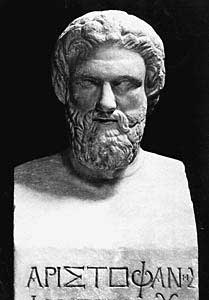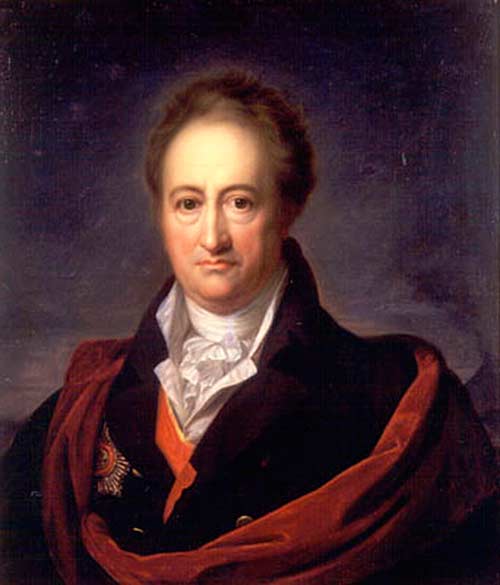English theater of the era of Shakespeare
 Along with the development of dramatic poetry in England, the stage production of plays was also improved. The great importance of Shakespeare’s dramas arouses interest in the design of the theater in his time. The knowledge of the stage situation is necessary for understanding the drama of Shakespeare, as the dramas of Sophocles and Euripides become clear only with the knowledge of the structure of the Greek theater. The English drama, like the Greek, is derived from religious plays. The Catholic Church allowed a comic element in the mysteries and morals; Reformation did not tolerate it. England adopted Calvinism in a gentle form given to him by the government. The king and the aristocracy, in terms of which the institutions of the Anglican Church were established, had nothing against the theater, even patronized it; thanks to their willingness to spend money on performances, former amateur troupes were replaced by the bodies of professional artists. Singing of the royal chapel gave performances at the court of Elizabeth. Under the auspices of the nobles, other troupes of actors formed who gave performances in large cities and in rural palaces of aristocrats; some companies got the right to be called royals; they gave performances in hotels, claiming that this was permitted by their privilege of their title. Around the actors were people of erratic living in hotels; they constituted a significant part of the public, especially in London theaters. Even then London already surpassed all the cities of Europe with populations and wealth; there were thousands of single people who had no shortage of leisure or money for entertainment. Craftsmen, workers of shipyards and factories filled the yard, on which stood the stage of the English theater of that era. An even poorer class audience occupied the gallery; they were sailors, servants, street women.
Along with the development of dramatic poetry in England, the stage production of plays was also improved. The great importance of Shakespeare’s dramas arouses interest in the design of the theater in his time. The knowledge of the stage situation is necessary for understanding the drama of Shakespeare, as the dramas of Sophocles and Euripides become clear only with the knowledge of the structure of the Greek theater. The English drama, like the Greek, is derived from religious plays. The Catholic Church allowed a comic element in the mysteries and morals; Reformation did not tolerate it. England adopted Calvinism in a gentle form given to him by the government. The king and the aristocracy, in terms of which the institutions of the Anglican Church were established, had nothing against the theater, even patronized it; thanks to their willingness to spend money on performances, former amateur troupes were replaced by the bodies of professional artists. Singing of the royal chapel gave performances at the court of Elizabeth. Under the auspices of the nobles, other troupes of actors formed who gave performances in large cities and in rural palaces of aristocrats; some companies got the right to be called royals; they gave performances in hotels, claiming that this was permitted by their privilege of their title. Around the actors were people of erratic living in hotels; they constituted a significant part of the public, especially in London theaters. Even then London already surpassed all the cities of Europe with populations and wealth; there were thousands of single people who had no shortage of leisure or money for entertainment. Craftsmen, workers of shipyards and factories filled the yard, on which stood the stage of the English theater of that era. An even poorer class audience occupied the gallery; they were sailors, servants, street women.
The theater was the meeting place of all classes of English society. For the common people, there were many bad theaters in London. But besides them there were several others for the upper classes, there, in the first row of the stalls, in front of the actors free from the game that evening, poets and critics sat noble patrons of dramatic art, for the most part young unmarried nobles who came to watch on stage them in life: military exploits, love affairs, court intrigues. These young grandees were not interested in plays from the history of the Reformation, which the middle class loved. They were friends with the actors, not forgetting in their circle of their superiority over them by social position. There were such patrons and Shakespeare. They behaved impudently not only with the actors who honored their friendship, but also with the theatrical audience. For many of them, chairs were placed on the stage itself and between the wings; some did not sit there in chairs, but lay on carpets spread for them. The public smoked, drank beer, ate apples, nibbled nuts, and during intermissions played cards, had a good time and red tape. At the bottom of the two galleries of the Globus Theater were those women of easy virtue who were kept by rich and distinguished people; these ladies behaved very unceremoniously. Behind them, some of the wives of the manufacturers, merchants, sat down, but covered their faces with masks. In general, visiting the theater was considered indecent for honest women. Actresses were not, female roles were played by teenagers. You need to know this in order to understand why Shakespeare even the heroines of dramas often use indecent expressions; Yes, and many features of the content of his dramas are explained by the lack of modest women. For a noble public, he brings to the stage sovereigns, sovereigns, noble gentlemen and ladies, speaking in exquisite language; and for the mass of the public, coarse comic scenes are inserted into his dramas. The middle-class people — burgomasters, teachers, scholars, priests, doctors — are usually shown in Shakespeare only in comic scenes, serving as pranks for noble characters.



